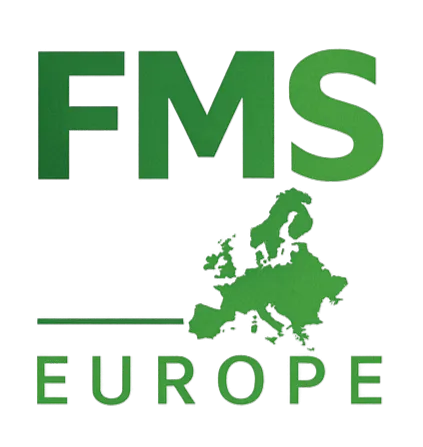
Purity Water Franchise System – Bringing Consistency and Accountability to the Water Retail Business
October 7, 2025
Emmet O’Brien: Turning Entrepreneurs into Expansion Engines
October 10, 2025
1. What Are Franchise Development Costs?
Franchise Development is the process of turning your business into a franchise in order to offer your brand as a franchise model. Franchise development costs include all the expenses a company incurs to create, structure, and sell franchise opportunities. Common examples:
-
Legal fees for the Franchise Disclosure Document (FDD) and franchise agreements
-
State registration fees (https://www.fmsfranchise.com/learn/resources/state-guidelines/ )
-
Marketing and lead generation for franchise sales
-
Consulting fees for franchise program design and documentation
-
Operations manual development, training materials, and system setup
These are the foundation of your franchise model — and accounting rules treat them differently depending on their purpose.
2. Accounting Standards That Apply
Two main accounting frameworks apply:
-
U.S. GAAP (Generally Accepted Accounting Principles)
-
IFRS (International Financial Reporting Standards)
Under U.S. GAAP, most franchise development and franchise sales costs are covered under ASC 952 (Franchisors) and ASC 606 (Revenue from Contracts with Customers).
Under IFRS, similar guidance exists under IFRS 15.
3. Capitalizing vs. Expensing Franchise Development Costs
Here’s the key distinction:
|
Type of Cost |
Treatment |
Reasoning |
|---|---|---|
|
Franchise program development (initial FDD, manuals, system setup) |
Capitalize |
These are start-up costs that create an intangible asset — the franchise system itself. |
|
Legal, consulting, or registration fees directly tied to developing the franchise model |
Capitalize |
These create long-term value and benefit multiple accounting periods. |
|
Marketing costs for selling franchises (advertising, brokers, events) |
Expense |
These are considered period costs — they don’t create a lasting asset. |
|
Training and support costs for initial franchisees |
Expense (unless specifically reimbursed by the franchise fee) |
These are tied to revenue recognition and are recognized over the contract term. |
|
Commission to franchise brokers (sales) |
Defer and amortize |
These can be capitalized as incremental costs to obtain a contract and amortized over the life of the franchise agreement. |
4. Capitalized Franchise Development Costs – Balance Sheet Impact
When certain costs are capitalized, they appear as an intangible asset on your balance sheet.
Example:
-
Account name: Franchise Development Costs (or Franchise System Intangible Asset)
-
Classification: Non-current (long-term) asset
These costs are then amortized (expensed gradually) over a reasonable period — often 5 to 10 years, depending on the estimated useful life of the franchise system.
5. Franchise Sales Costs and Revenue Recognition
When you sell a franchise, you may receive an initial franchise fee. Under ASC 606, franchisors typically:
-
Defer recognition of the initial franchise fee until the franchisor’s obligations (like training or setup) are substantially completed.
-
Recognize revenue over time during the term of the franchise agreement if ongoing support and brand rights are the primary performance obligations.
Any sales-related costs (like broker commissions) are capitalized as contract acquisition costs and amortized over the same period as the franchise fee revenue recognition.
6. Start-Up and Organizational Costs
If you’re in the process of forming the franchise entity, certain organizational and startup costs (like incorporating, creating corporate documents, or developing the brand identity) are generally:
-
Expensed as incurred under GAAP (per ASC 720).
-
But in some cases, intangible costs directly tied to creating a proprietary system or intellectual property may be capitalized and amortized under ASC 350 (Intangibles).
7. Tax Treatment (IRS)
From a tax perspective, the IRS typically requires that most startup and organizational costs be capitalized and then amortized over 15 years under IRC Section 195.
However, businesses can elect to deduct up to $5,000 of startup costs in the first year, with the remainder amortized.
-
Legal and consulting fees related to setting up the franchise system can qualify.
-
Advertising and lead generation remain non-capitalizable (deductible as incurred).
So, your tax books may differ from your financial accounting books — a common and acceptable difference reconciled through deferred tax entries.
8. Example Entry
Let’s say you spend:
-
$30,000 on legal and consulting for FDD and operations manual
-
$15,000 on franchise marketing
-
$10,000 commission to a franchise broker upon closing a sale
Journal entries might look like:
Dr. Franchise Development Costs (Intangible Asset) .......... $30,000
Dr. Franchise Marketing Expense ............................. $15,000
Dr. Deferred Franchise Commission Asset ..................... $10,000
Cr. Cash .......................................................... $55,000
Later, the Deferred Franchise Commission and Development Costs would be amortized as the franchise fees are recognized in revenue.
9. Audit and Disclosure Requirements
If your franchise company issues audited financial statements (often required for Item 21 of the FDD), your CPA must ensure compliance with ASC 606 and ASC 952. You’ll likely need to:
-
Disclose the nature and amount of capitalized costs
-
Disclose amortization methods and useful lives
-
Provide clear reconciliation of deferred revenue and deferred costs
10. Summary – When to Put Franchise Development Costs on the Balance Sheet
Can be capitalized (on the balance sheet):
-
Legal, consulting, and documentation costs for franchise system creation
-
Broker commissions tied to executed franchise sales contracts
Must be expensed (on the income statement):
-
General advertising and lead generation
-
Training and onboarding of franchisees
-
Ongoing support and administrative expenses
You can put certain franchise development costs on your balance sheet — but only those that create long-term value or are directly attributable to obtaining a franchise contract.
Everything else that benefits only the current period or is tied to general operations must be expensed.
The most accurate approach is to have your CPA review each cost category under ASC 606 and ASC 952 to determine capitalization eligibility and amortization timing.
For more information on how to franchise your business model, contact Chris Conner with Franchise Marketing Systems – [email protected] or visit the FMS site: www.FMSFranchise.com






